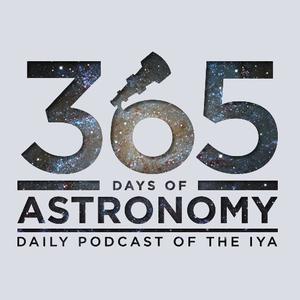
The 365 Days of Astronomy
365DaysOfAstronomy.org
- 36 minutes 22 secondsBig Impact Astronomy - Inclusive Astronomy Outreach With Cesare Pagano & Andra Stoica
Inclusive astronomy outreach is possible with simple tools: Tactile sheets, 3D models, and balloons with star stickers are powerful resources for teaching astronomy to the blind, making the Universe accessible to all.
- Cesare Pagano and Andra Stoica discuss their roles in the Inclusive Outreach sub-working group of the International Astronomical Union, focusing on making astronomy accessible to people with disabilities.
- Andra Stoica explains how tools such as tactile sheets and 3D models allow visually impaired individuals to experience and understand astronomical concepts.
Mike Simmons is the founder of Astronomy for Equity ( https://bmsis.org/astro4equity/ ). Others on the team, including people around the world in astronomy and space exploration, authors and philosophers, designers and artists and more will be added as the website is developed.
We've added a new way to donate to 365 Days of Astronomy to support editing, hosting, and production costs.
Just visit: https://www.patreon.com/365DaysOfAstronomy and donate as much as you can!
Share the podcast with your friends and send the Patreon link to them too!
Every bit helps! Thank you!
------------------------------------
Do go visit http://www.redbubble.com/people/CosmoQuestX/shop for cool Astronomy Cast and CosmoQuest t-shirts, coffee mugs and other awesomeness!
http://cosmoquest.org/Donate This show is made possible through your donations.
Thank you! (Haven't donated? It's not too late! Just click!)
------------------------------------
The 365 Days of Astronomy Podcast is produced by the Planetary Science Institute. http://www.psi.edu
Visit us on the web at 365DaysOfAstronomy.org or email us at [email protected].
22 January 2025, 12:00 pm - 43 minutes 26 secondsAsk A Spaceman - Ep. 239: What Are the Weirdest Hypothetical Particles?
Are dark photons as sinister as they sound? What did the curvaton do in the early universe? And is everything really made of preons? I discuss these questions and more in today’s Ask a Spaceman!
This episode is sponsored by BetterHelp. Give online therapy a try at betterhelp.com/spaceman and get on your way to being your best self. Visit BetterHelp to get 10% off your first month!
Support the show: http://www.patreon.com/pmsutter
All episodes: http://www.AskASpaceman.com
Follow on Twitter: http://www.twitter.com/PaulMattSutter
Read a book: http://www.pmsutter/book
Keep those questions about space, science, astronomy, astrophysics, physics, and cosmology coming to #AskASpaceman for COMPLETE KNOWLEDGE OF TIME AND SPACE!
Big thanks to my top Patreon supporters this month: Justin G, Chris L, Alberto M, Duncan M, Corey D, Robert B, Naila, Sam R, John S, Joshua, Scott M, Rob H, Scott M, Louis M, John W, Alexis, Gilbert M, Rob W, Jessica M, Jules R, Mike G, Jim L, David S, Scott R, Heather, Mike S, Pete H, Steve S, wahtwahtbird, Lisa R, Couzy, Kevin B, Michael B, Aileen G, Mark R, Alan B, Craig B, Mark F, Richard K, Stace J, Stephen J, Joe R, David P, Sean M, Tracy F, Sarah K, Ryan L, Ella F, Thomas K, James C, Syamkumar M, Homer V, Mark D, Bruce A, Bill E, Tim Z, Linda C, The Tired Jedi, Gary K, David W, dhr18, Lode D, Bob C, Red B, Stephen A, James R, Robert O, Lynn D, Allen E, Michael S, Reinaldo A, Sheryl, David W, Sue T, Josephine K, Chris, Michael S, Erlend A, James D, Larry D, Matt K, Charles, Karl W, Den K, George B, Tom B, Edward K, and Catherine B!
Hosted by Dr. Paul M. Sutter.
We've added a new way to donate to 365 Days of Astronomy to support editing, hosting, and production costs.
Just visit: https://www.patreon.com/365DaysOfAstronomy and donate as much as you can!
Share the podcast with your friends and send the Patreon link to them too!
Every bit helps! Thank you!
------------------------------------
Do go visit http://www.redbubble.com/people/CosmoQuestX/shop for cool Astronomy Cast and CosmoQuest t-shirts, coffee mugs and other awesomeness!
http://cosmoquest.org/Donate This show is made possible through your donations.
Thank you! (Haven't donated? It's not too late! Just click!)
------------------------------------
The 365 Days of Astronomy Podcast is produced by the Planetary Science Institute. http://www.psi.edu
Visit us on the web at 365DaysOfAstronomy.org or email us at [email protected].
21 January 2025, 12:00 pm - 30 minutes 46 secondsAstronomy Cast Ep. 740: Sneaky Stars!
https://www.youtube.com/watch?v=5H24hCeBsNI
Streamed live on Jan 13, 2025.
Why stars can’t be trusted!
If you’re an astronomer you depend on accurate observations of stars, but there’s a problem. Stars are sneaky! Changing in size, brightness, color, they hide their chemistry, their age and even their companions from all but the cleverest observers. Stars explode precisely when they intend to. Betelgeuse took a brightness plunge, T CrB refused to go nova, and other failures to be predictable irk observers for good reasons. Let's talk about it.
SUPPORTED BY YOU!
This Episode is made possible thanks to our Patrons on Patreon. Join at the Galaxy Group level or higher to be listed in our YouTube videos.
Thanks to: Andrew Poelstra, BogieNet, Brian Cagle, David, David Truog, Ed, Gerhard, Schwarzer, Jeanette Wink, Siggi Kemmler, Stephen Veit
We've added a new way to donate to 365 Days of Astronomy to support editing, hosting, and production costs.
Just visit: https://www.patreon.com/365DaysOfAstronomy and donate as much as you can!
Share the podcast with your friends and send the Patreon link to them too!
Every bit helps! Thank you!
------------------------------------
Do go visit http://www.redbubble.com/people/CosmoQuestX/shop for cool Astronomy Cast and CosmoQuest t-shirts, coffee mugs and other awesomeness!
http://cosmoquest.org/Donate This show is made possible through your donations.
Thank you! (Haven't donated? It's not too late! Just click!)
------------------------------------
The 365 Days of Astronomy Podcast is produced by the Planetary Science Institute. http://www.psi.edu
Visit us on the web at 365DaysOfAstronomy.org or email us at [email protected].
20 January 2025, 12:00 pm - 6 minutes 5 secondsTravelers in the Night Eps. 777 & 778: Psyche Bound & Two Comets
Dr. Al Grauer hosts. Dr. Albert D. Grauer ( @Nmcanopus ) is an observational asteroid hunting astronomer. Dr. Grauer retired from the University of Arkansas at Little Rock in 2006. travelersinthenight.org
From Dec ’23 & Jan ’24.
Today's 2 topics:
- The NASA Psyche Spacecraft will use a multispectral imager, gamma and neutron spectrometers, and other instruments to map, measure, and characterize an unknown weird world.
- Matching his wife’s discovery of two comets on the same observing run seven years previously my Catalina Sky Survey team caption Carson Fuls discovered two comets on consecutive nights. They have very different origins and ultimater fates.
We've added a new way to donate to 365 Days of Astronomy to support editing, hosting, and production costs.
Just visit: https://www.patreon.com/365DaysOfAstronomy and donate as much as you can!
Share the podcast with your friends and send the Patreon link to them too!
Every bit helps! Thank you!
------------------------------------
Do go visit http://www.redbubble.com/people/CosmoQuestX/shop for cool Astronomy Cast and CosmoQuest t-shirts, coffee mugs and other awesomeness!
http://cosmoquest.org/Donate This show is made possible through your donations.
Thank you! (Haven't donated? It's not too late! Just click!)
------------------------------------
The 365 Days of Astronomy Podcast is produced by the Planetary Science Institute. http://www.psi.edu
Visit us on the web at 365DaysOfAstronomy.org or email us at [email protected].
19 January 2025, 12:00 pm - 9 minutes 3 secondsASTROMAN: The Dark Sky Guardian - Light Pollution in Urban Cities
“ASTROMAN: the Dark Sky Guardian” is a podcast channel that aims to explore popular science in multiple disciplines and research on interdisciplinary approaches, such as sustainability, dark-sky protection, astrophotography, space exploration, astronomy innovation, inclusive science communication, and STEAM Education by integrating science and arts.
Exodus CL Sit, also known as the ASTROMAN, is a transmedia astronomy educator, popular science author, STEAM educator, and science communicator in Hong Kong. He is recently the National Astronomy Education Coordinator (Chair of Hong Kong, China) of the International Astronomical Union and President of Starrix. He was also an International Committee Member of the Dark Sky International, regularly organizing public lectures at the Hong Kong Space Museum and the Hong Kong Science Museum. He was also the author of a popular science book “Decoding the Starry Night: A Guide to Stargazing and Astrophotography”.
We've added a new way to donate to 365 Days of Astronomy to support editing, hosting, and production costs.
Just visit: https://www.patreon.com/365DaysOfAstronomy and donate as much as you can!
Share the podcast with your friends and send the Patreon link to them too!
Every bit helps! Thank you!
------------------------------------
Do go visit http://www.redbubble.com/people/CosmoQuestX/shop for cool Astronomy Cast and CosmoQuest t-shirts, coffee mugs and other awesomeness!
http://cosmoquest.org/Donate This show is made possible through your donations.
Thank you! (Haven't donated? It's not too late! Just click!)
------------------------------------
The 365 Days of Astronomy Podcast is produced by the Planetary Science Institute. http://www.psi.edu
Visit us on the web at 365DaysOfAstronomy.org or email us at [email protected].
18 January 2025, 12:00 pm - 14 minutes 17 secondsEVSN - Free-flowing Water On Ancient Mars? Not So Fast!
From August 4, 2020.
Join us today as we talk about newly released research that suggests the waters on ancient Mars were subglacial and not free-flowing. Also, a black hole goes dormant and star formation goes wild. Meanwhile, computer models show that unequal neutron stars colliding may cause a big “bang” that can be detected on Earth.
We've added a new way to donate to 365 Days of Astronomy to support editing, hosting, and production costs.
Just visit: https://www.patreon.com/365DaysOfAstronomy and donate as much as you can!
Share the podcast with your friends and send the Patreon link to them too!
Every bit helps! Thank you!
------------------------------------
Do go visit http://www.redbubble.com/people/CosmoQuestX/shop for cool Astronomy Cast and CosmoQuest t-shirts, coffee mugs and other awesomeness!
http://cosmoquest.org/Donate This show is made possible through your donations.
Thank you! (Haven't donated? It's not too late! Just click!)
------------------------------------
The 365 Days of Astronomy Podcast is produced by the Planetary Science Institute. http://www.psi.edu
Visit us on the web at 365DaysOfAstronomy.org or email us at [email protected].
17 January 2025, 12:00 pm - 47 minutes 25 secondsActual Astronomy - Listener Emails & Christmas Presents
Hosted by Chris Beckett & Shane Ludtke, two amateur astronomers in Saskatchewan. [email protected]
Listener emails and Christmas Presents on Episode 466!
The Actual Astronomy Podcast presents Listener Emails and Christmas Presents. We talk about several items listeners received as well as what other people are doing under the stars.
We get emails from Alejandro, Adam, Stan, Chris K., another Chris and Tim.
We've added a new way to donate to 365 Days of Astronomy to support editing, hosting, and production costs.
Just visit: https://www.patreon.com/365DaysOfAstronomy and donate as much as you can!
Share the podcast with your friends and send the Patreon link to them too!
Every bit helps! Thank you!
------------------------------------
Do go visit http://www.redbubble.com/people/CosmoQuestX/shop for cool Astronomy Cast and CosmoQuest t-shirts, coffee mugs and other awesomeness!
http://cosmoquest.org/Donate This show is made possible through your donations.
Thank you! (Haven't donated? It's not too late! Just click!)
------------------------------------
The 365 Days of Astronomy Podcast is produced by the Planetary Science Institute. http://www.psi.edu
Visit us on the web at 365DaysOfAstronomy.org or email us at [email protected].
16 January 2025, 12:00 pm - 51 minutes 52 secondsBig Impact Astronomy - Jean Pierre Grootaerd: Stars Shine for Everyone
Hosted by Mike Simmons.
**Jean Pierre Grootaerd (Belgium and the World) Stars Shine for Everyone: Global Telescope Outreach**
- Jean-Pierre builds mounts for donated telescopes for education in developing countries. He partners with the International Astronomical Union to gift telescopes that inspire students worldwide. Follow the journey of telescopes from Belgium to classrooms around the world, sparking curiosity and wonder.
Mike Simmons is the founder of Astronomy for Equity ( https://bmsis.org/astro4equity/ ). Others on the team, including people around the world in astronomy and space exploration, authors and philosophers, designers and artists and more will be added as the website is developed.
We've added a new way to donate to 365 Days of Astronomy to support editing, hosting, and production costs.
Just visit: https://www.patreon.com/365DaysOfAstronomy and donate as much as you can!
Share the podcast with your friends and send the Patreon link to them too!
Every bit helps! Thank you!
------------------------------------
Do go visit http://www.redbubble.com/people/CosmoQuestX/shop for cool Astronomy Cast and CosmoQuest t-shirts, coffee mugs and other awesomeness!
http://cosmoquest.org/Donate This show is made possible through your donations.
Thank you! (Haven't donated? It's not too late! Just click!)
------------------------------------
The 365 Days of Astronomy Podcast is produced by the Planetary Science Institute. http://www.psi.edu
Visit us on the web at 365DaysOfAstronomy.org or email us at [email protected].
15 January 2025, 12:00 pm - 6 minutes 40 secondsExoplanet Radio - TESS's Breakthrough Discovery of Long-Period Exoplanets TOI 4600 b and c
Fron September 7, 2023.
Hosted by Tony Darnell.
Human beings have discovered over five thousand five hundred exoplanets. Over 80 percent of them have orbits shorter than 50 days which would place them at over twice as close to their star as Mercury is to the Sun. Some are even closer. Recent observations from TESS however have found one with an orbit of 82 days and another measured in hundreds of days.
We've added a new way to donate to 365 Days of Astronomy to support editing, hosting, and production costs.
Just visit: https://www.patreon.com/365DaysOfAstronomy and donate as much as you can!
Share the podcast with your friends and send the Patreon link to them too!
Every bit helps! Thank you!
------------------------------------
Do go visit http://www.redbubble.com/people/CosmoQuestX/shop for cool Astronomy Cast and CosmoQuest t-shirts, coffee mugs and other awesomeness!
http://cosmoquest.org/Donate This show is made possible through your donations.
Thank you! (Haven't donated? It's not too late! Just click!)
------------------------------------
The 365 Days of Astronomy Podcast is produced by the Planetary Science Institute. http://www.psi.edu
Visit us on the web at 365DaysOfAstronomy.org or email us at [email protected].
14 January 2025, 12:00 pm - 32 minutes 26 secondsAstronomy Cast Ep. 739: Drones!
https://www.youtube.com/watch?v=6Dx59ue1pZo
Hosted by: Fraser Cain and Dr. Pamela L. Gay
Streamed live January 9, 2025.
From little Ingenuity to the future Firefly and all our Earth Science fliers, let's look at the buzzy scientists. NASA’s Mars Ingenuity helicopter showed us how wonderful a flying science platform can be on another world. Soon there’ll be a helicopter flying on Titan, but there are many other flying robots that’ll be helping us with all our science needs.
SUPPORTED BY YOU
This Episode is made possible thanks to our Patrons on Patreon. Join at the Galaxy Group level or higher to be listed in our YouTube videos.
Thanks to: Andrew Poelstra, BogieNet, Brian Cagle, David, David Truog, Ed, Gerhard, Schwarzer, Jeanette Wink, Siggi Kemmler, Stephen Veit.
We've added a new way to donate to 365 Days of Astronomy to support editing, hosting, and production costs.
Just visit: https://www.patreon.com/365DaysOfAstronomy and donate as much as you can!
Share the podcast with your friends and send the Patreon link to them too!
Every bit helps! Thank you!
------------------------------------
Do go visit http://www.redbubble.com/people/CosmoQuestX/shop for cool Astronomy Cast and CosmoQuest t-shirts, coffee mugs and other awesomeness!
http://cosmoquest.org/Donate This show is made possible through your donations.
Thank you! (Haven't donated? It's not too late! Just click!)
------------------------------------
The 365 Days of Astronomy Podcast is produced by the Planetary Science Institute. http://www.psi.edu
Visit us on the web at 365DaysOfAstronomy.org or email us at [email protected].
13 January 2025, 12:00 pm - 6 minutes 5 secondsTravelers in the Night Eps. 775 & 776: 3 Close Approaches & Naming Asteroids and Comets
Dr. Al Grauer hosts. Dr. Albert D. Grauer ( @Nmcanopus ) is an observational asteroid hunting astronomer. Dr. Grauer retired from the University of Arkansas at Little Rock in 2006. travelersinthenight.org
From December 2023.
Today's 2 topics:
- During a six hour period three small space rocks passed through the Earth-Moon system. At discovery 2023 TO4 was in Pegasus, 2023 TD7 was in Aries , and 2023 TQ3 was in Eradanus.
- Every year a significant number of comets and asteroids are discovered by amateur astronomers with modest equipment.Their reward is satisfaction and the right to name their discovery.
We've added a new way to donate to 365 Days of Astronomy to support editing, hosting, and production costs.
Just visit: https://www.patreon.com/365DaysOfAstronomy and donate as much as you can!
Share the podcast with your friends and send the Patreon link to them too!
Every bit helps! Thank you!
------------------------------------
Do go visit http://www.redbubble.com/people/CosmoQuestX/shop for cool Astronomy Cast and CosmoQuest t-shirts, coffee mugs and other awesomeness!
http://cosmoquest.org/Donate This show is made possible through your donations.
Thank you! (Haven't donated? It's not too late! Just click!)
------------------------------------
The 365 Days of Astronomy Podcast is produced by the Planetary Science Institute. http://www.psi.edu
Visit us on the web at 365DaysOfAstronomy.org or email us at [email protected].
12 January 2025, 12:00 pm - More Episodes? Get the App
Your feedback is valuable to us. Should you encounter any bugs, glitches, lack of functionality or other problems, please email us on [email protected] or join Moon.FM Telegram Group where you can talk directly to the dev team who are happy to answer any queries.
 Space Nuts
Space Nuts
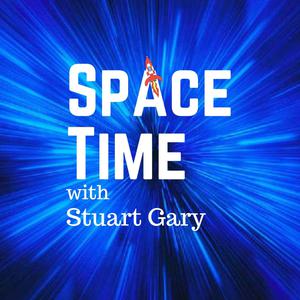 SpaceTime with Stuart Gary
SpaceTime with Stuart Gary
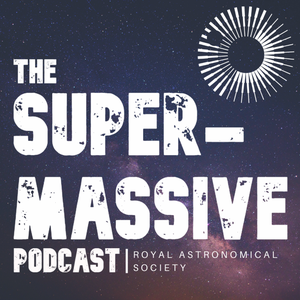 The Supermassive Podcast
The Supermassive Podcast
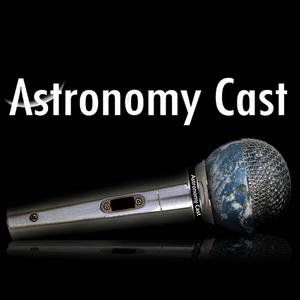 Astronomy Cast
Astronomy Cast
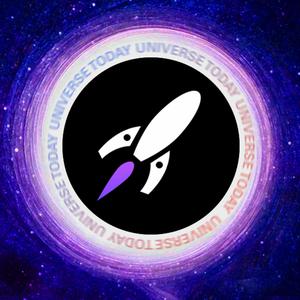 Universe Today Podcast
Universe Today Podcast
 Ask a Spaceman!
Ask a Spaceman!